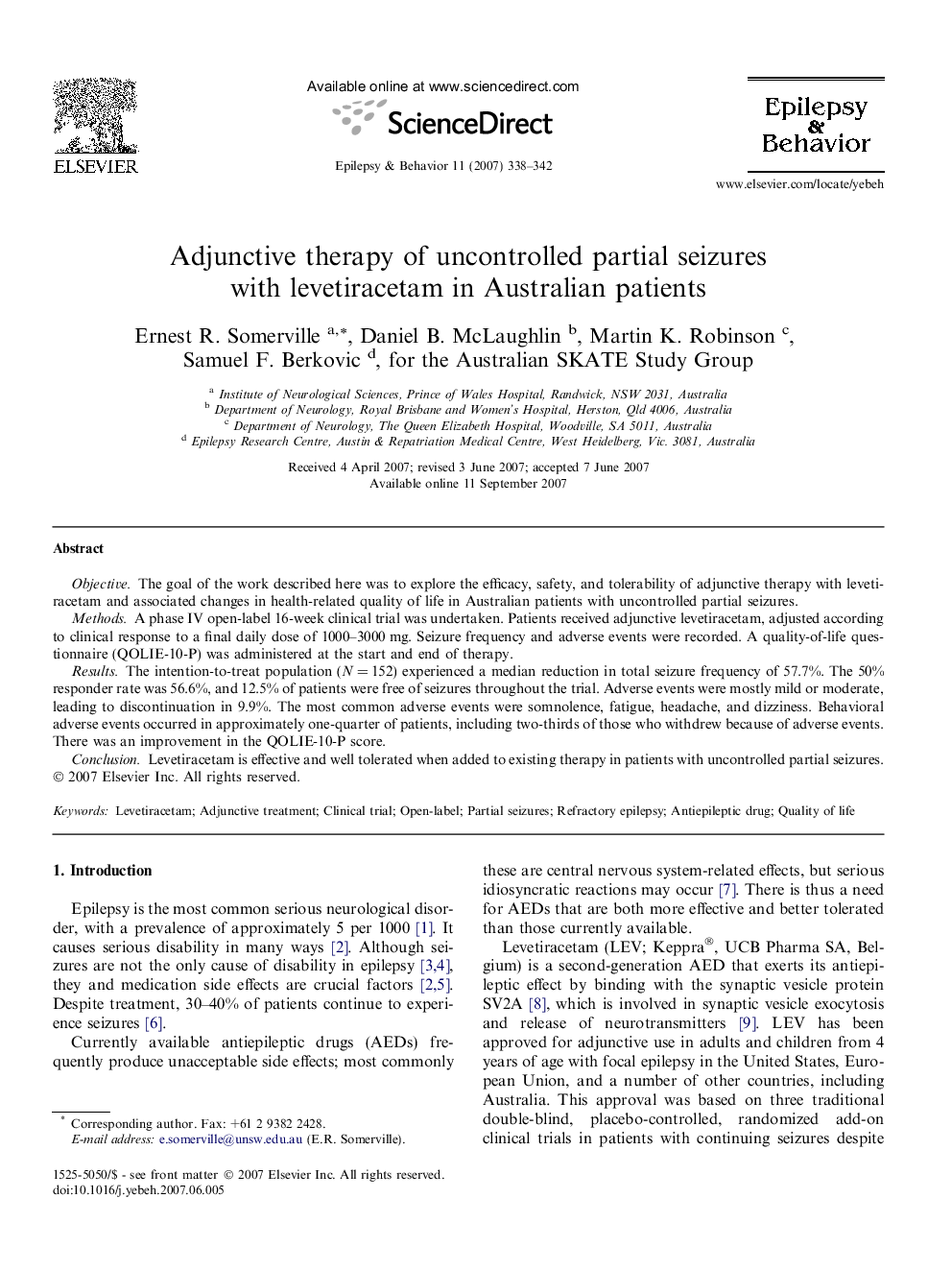| Article ID | Journal | Published Year | Pages | File Type |
|---|---|---|---|---|
| 3050777 | Epilepsy & Behavior | 2007 | 5 Pages |
ObjectiveThe goal of the work described here was to explore the efficacy, safety, and tolerability of adjunctive therapy with levetiracetam and associated changes in health-related quality of life in Australian patients with uncontrolled partial seizures.MethodsA phase IV open-label 16-week clinical trial was undertaken. Patients received adjunctive levetiracetam, adjusted according to clinical response to a final daily dose of 1000–3000 mg. Seizure frequency and adverse events were recorded. A quality-of-life questionnaire (QOLIE-10-P) was administered at the start and end of therapy.ResultsThe intention-to-treat population (N = 152) experienced a median reduction in total seizure frequency of 57.7%. The 50% responder rate was 56.6%, and 12.5% of patients were free of seizures throughout the trial. Adverse events were mostly mild or moderate, leading to discontinuation in 9.9%. The most common adverse events were somnolence, fatigue, headache, and dizziness. Behavioral adverse events occurred in approximately one-quarter of patients, including two-thirds of those who withdrew because of adverse events. There was an improvement in the QOLIE-10-P score.ConclusionLevetiracetam is effective and well tolerated when added to existing therapy in patients with uncontrolled partial seizures.
